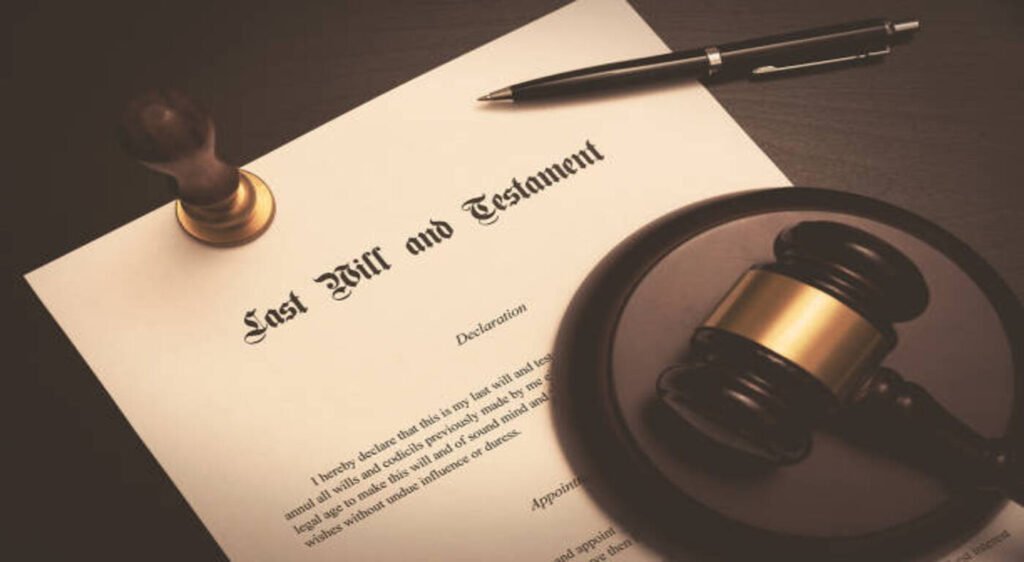
A will is a legally binding document that dictates how a deceased person’s estate is distributed.
However, there are instances where beneficiaries or individuals close to the deceased may feel the will is unfair, invalid, or does not reflect the true intentions of the testator.
In such cases, contesting a will may be necessary.
In this comprehensive guide, we will explore the process of contesting a will in the UK, including valid grounds, legal procedures, and expert recommendations to improve your chances of success.
What is Contesting a Will?
Contesting a will is the legal process of challenging the validity of a will based on specific grounds.
This process can be complex and requires strong legal backing to ensure a fair resolution.
If successful, the will can be deemed invalid or altered according to legal requirements.
Can You Contest a Will in the UK?
Yes, you can contest a will in the UK under certain conditions.
The law allows specific individuals to challenge a will, including:
Family members (spouse, children, siblings, and parents)
Beneficiaries named in the current or previous wills
Individuals financially dependent on the deceased
Creditors who are owed money from the estate
If you fall into any of these categories, you may have legal grounds to challenge a will.
Valid Grounds for Contesting a Will
To successfully contest a will, you must have a valid reason. The primary legal grounds include:
1. Lack of Testamentary Capacity
For a will to be valid, the testator (person creating the will) must have been of sound mind at the time of its drafting.
If they were suffering from a mental disorder, dementia, or any condition that impaired their decision-making abilities, the will may be contested.
2. Undue Influence or Coercion
If there is evidence that the testator was pressured, coerced, or manipulated into making or altering the will, it can be declared invalid.
This is common in cases involving elderly individuals or those in vulnerable positions.
3. Fraud or Forgery
A will can be contested if there is proof of fraud or forgery.
This includes scenarios where signatures were faked, documents were altered, or misleading information was used to influence the testator.
4. Lack of Due Execution
A will must be signed and witnessed correctly as per UK law.
If it was not signed in the presence of two independent witnesses, or if witnesses were ineligible, the will can be challenged.
5. Rectification and Construction Claims
Errors in a will’s drafting, ambiguous wording, or mistakes made by the solicitor can lead to legal disputes.
If it can be proven that the testator’s true intentions were not reflected, the court may rectify the will.
Process of Contesting a Will in the UK
If you believe you have valid grounds to contest a will, follow these steps:
1. Seek Legal Advice
Consult a probate solicitor specializing in contested wills. They will assess your claim and advise on the best course of action.
2. Lodge a Caveat
A caveat is a formal legal document that prevents the grant of probate while disputes are being resolved.
This must be submitted to the Probate Registry and is valid for six months.
3. Gather Evidence
To build a strong case, collect medical records, financial documents, witness statements, and other relevant evidence that supports your claim.
4. Attempt Mediation
Mediation is a cost-effective way to settle disputes without going to court.
A mediator helps parties reach an agreement that is acceptable to all involved.
5. File a Court Claim
If mediation fails, you can file a claim in court.
The process may take months or even years, depending on the complexity of the case.
The court will examine evidence and decide whether the will is valid or should be changed.
6. Court Decision and Distribution of Estate
The court’s ruling will determine how the estate is distributed. If the will is declared invalid, an earlier valid will is used, or the estate is distributed according to intestacy laws.
Time Limits for Contesting a Will
It is crucial to act quickly when contesting a will. The time limits for different claims are:
Fraud Claims – No time limit
Inheritance Act Claims – Within 6 months from the grant of probate
Other Claims – Usually within 12 years of death
Seeking legal advice as soon as possible increases your chances of a successful challenge.
Cost of Contesting a Will
The cost of contesting a will varies depending on case complexity, legal fees, and court expenses.
In some cases, mediation can significantly reduce costs.
If successful, legal fees may be covered by the estate.
How Probate Central Can Help You
Contesting a will can be an emotionally and legally challenging process.
At Probate Central, we specialize in probate services, will disputes, and estate administration.
Our expert solicitors can help you navigate the complexities of will disputes and ensure you get a fair outcome.
Get in touch today for a free consultation and expert advice!
Frequently Asked Questions (FAQs)
1. How long does it take to contest a will?
The process can take anywhere from a few months to several years, depending on the complexity of the case and whether mediation is successful.
2. Can you contest a will after probate is granted?
Yes, but it is more challenging. If probate has been granted, you need to act quickly and provide strong evidence to contest the will.
3. What happens if a will is declared invalid?
If a will is found to be invalid, an earlier valid will is used. If no previous valid will exists, the estate is distributed according to intestacy laws.
4. Do I need a solicitor to contest a will?
While it is possible to contest a will without a solicitor, it is highly recommended to seek legal advice due to the complexity of probate laws.
5. Can siblings contest a will?
Yes, siblings can contest a will if they have valid grounds, such as lack of testamentary capacity, undue influence, or financial dependency.
